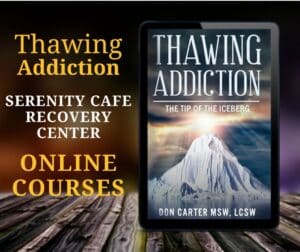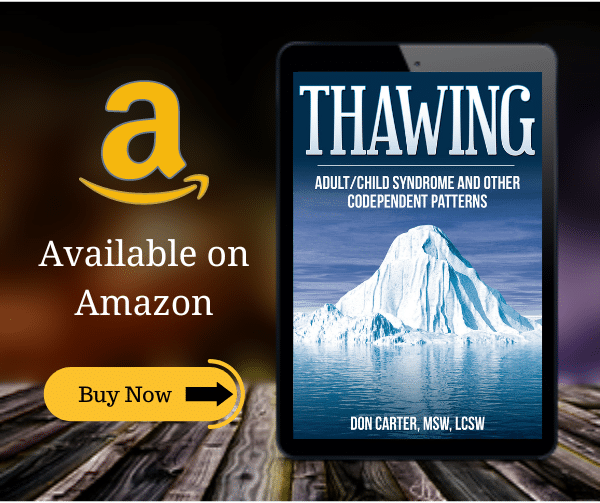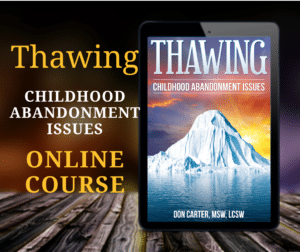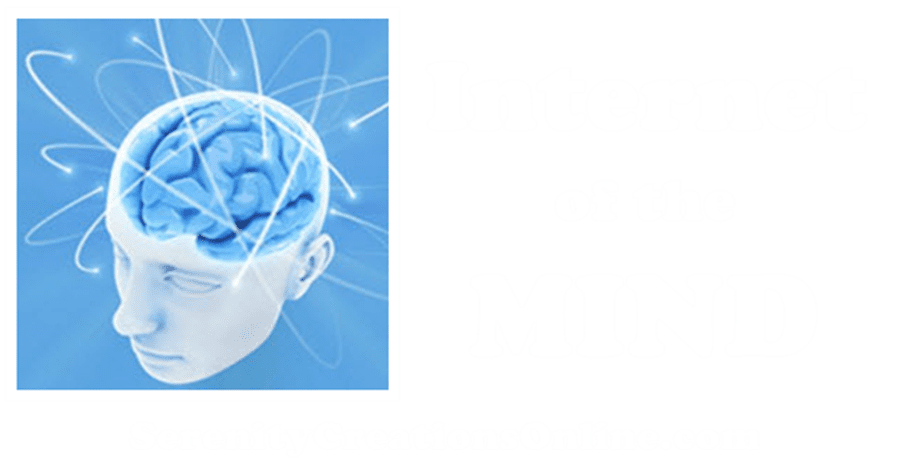
Addiction Games of the Inner Child
Addiction games are habitual patterns of behavior that feed the three hungers of the Inner Child. If you have ever spent time taking care of a child you know that they can be a handful.
There are three basic things a child does not tolerate well:
- A lack of Structure — A daily schedule of proper diet, sleep, exercise and appropriate activities
- A lack of Stimulation — Plenty of Fun, Adventure, & Excitement as this is how children learn
- A lack of Nurturing — Daily doses of Time, Attention, Affection, & Direction
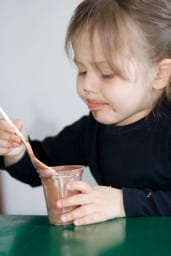
The Three Hungers of the Inner Child
The Child Ego State is the network of “First Position”. This means that our Child ego state is the network location of our wants… our needs… and our feelings. It is the neural network of Self-Awareness. According to Transactional Analysis, there are three primary hungers, also known as “needs”, that drive our behavior…
- Structure Hunger — The need to structure our time in a way that helps us fulfill the following two hungers.
- Stimulus Hunger — Strokes, Intensity, and Excitement
- Position Hunger — Validation or Confirmation of our Existential Position (Ok…not Ok)
Notice how these three hungers match the three items above that kids do not tolerate well — the first two are a direct match and the third need… our Existential Position… is a direct result of the nurturing we get.
Again, these hungers are about us…our needs… they are located in the network of First Position — The Child ego state. Remember that children are by nature impulsive, adventuresome, curious, and creative… and they want what they want when they want it. These three hungers are easily observed in the young child when they don’t stick to their schedule, get bored, or do not get enough positive attention or approval.
Kids who don’t get these needs met suffer from the original pain of abandonment — something that frequently occurs in dysfunctional families. (See the “Iceberg”). It logically follows that the Child Ego State is the part of us that gets addicted to various objects and activities. When this neural network is activated, or “takes the executive”, we experience ourselves and the world through that part of us.
Inner Child authors often refer to the Child “driving the bus” in one’s life that causes considerable pain… Kids are not supposed to be in charge of an adult’s life. Which of these daily meal plans do you imagine a kid would choose if it were up to them?
- Candy, soft drink, ice cream, pizza and cake…or
- Meat, potatoes, vegetables, Milk, and cake for dessert
Now imagine if your Inner Child did the shopping… what would your cupboards and refrigerator be filled with? Kids have little if any impulse control…that’s why we have parents. It’s the Parent ego state that is supposed to keep us out of trouble. If you have ever determined that you were going to stick to a proper diet or begin an exercise program but did not follow through then you have experienced that inner voice that started to chastise you for not doing so — enter the Inner Parent.
Can you begin to see in which ego state that bad habits and addictions reside? That’s right…and when the Child takes over “driving the bus” of our life we are headed for a crash. And if our Parent and Adult Ego States are confined to the back of the bus — hold on tight!
In his essay “Ego Factors in the Surrender to Alcoholism”, Dr. Harry Tiebout used Sigmund Freud’s description of an inborn trait to describe a distinctive feature in the personality of a person suffering from alcoholism — His Majesty, the Baby. Tom Cunningham later coined the term “King Baby” in his Hazelden pamphlet of the same name to describe this trait found in people afflicted with addictions of other kinds as well.
It’s the King or Queen Baby — aka spoiled child — who plays addiction games. His/her motto is “I want what I want when I want it… and I want it NOW!”
Addiction Games: Structure Hunger
Structure Hunger should be regulated by the Adult ego state in consultation with the Parent ego state as the Parent is the expert on nurturing, growth, and protection. Addiction games are played in many arenas. In fact, the structure of an addictive lifestyle is well known by those who are now living according to a new healthy lifestyle — often referred to as Recovery.
An important first step in overcoming any habit and addiction is to change the “play places, playmates, and playthings” that have become strongly associated with it. Some people take that to mean that they have to give up their friends — not true. A good friend will support your recovery regardless if they have a problem themselves…a false friend will try to bring you down because misery loves company.
Because of Pattern Matching, it’s very important to change everything about your life that is directly tied to your addiction games of choice — Whether that be nicotine, food, gambling, work, etc. — At least until your brain has had time to adapt to a new lifestyle. If you do not give your brain time and protection from the powerful associations it has made over the years to support your habits and addictions then change is not likely to stick.
Key Point:
In order for your brain to adapt to a new lifestyle — there needs TO BE a new lifestyle.
The structure of a new healthy lifestyle requires the activation of the Parent and Adult ego state — no easy task. Children who have been given too much power do not relinquish that power easily. The Adult ego state needs to take over “driving the bus” — The Adult is the best decision maker and problem solver. This job has been left solely to the Little Professor who creatively used its power of intuition to manipulate its way out of tight spots.
The Parent ego state, from Second Position, needs to consult with the Adult, Third Position, about such things as…
- Proper diet, exercise, sleep
- Daily Schedule
- Correct Behavior
- Spirituality and Values
- Needs – Hygiene, relationships, support networks
- To Do Lists
- Recovery activities & education
- Etc.
The Adult puts the plan together and implements it. If you wait until you “feel like it” then it will never happen… your feelings come from the Child who is in First Position.
Addiction Games: Stimulus Hunger
Stimulus Hunger is should be regulated by the Adult in consultation with the Child as the Child ego state knows what I feel…what I like…and what I need. Addiction games have been the methods used when the Child was in charge… These addiction games were intensely stimulating and repetitive experiences through the intensity wears off over time.
It’s incredibly important to begin finding fun and exciting things to do in your new lifestyle to replace the addiction games the Child used for stimulation. The lack of fun and excitement during the transitional period is one of the biggest causes of relapse so it is ABSOLUTELY essential to find alternative means of stimulating the Child ego state…
…To get started right away go to Expert Village for hundreds of “how-to” videos on fun activities, games, crafts & hobbies.
It is also essential to obtain positive strokes from others for the Child ego state… Simply put this means to have a source of support, encouragement, and direction from a network of other people who…
- Know what we are going through
- Have “been there and done that”
- Like us for who we are, not for what we can give them
- Have the knowledge of the way out
- Can show us the way by example
- Care enough to hold us accountable
It’s important to be with other with whom we can identify in order to know that we are “ok” — We usually have a lot of repairs to make to the bus as well as the countryside after a long period of our Child at the wheel.
Addiction Games: Position Hunger
Our Inner Child is likely to have quite a bit of shame after his/or her jaunt through the countryside… The negative consequences of over-doing it with food, drugs, alcohol, gambling, sex, and other compulsive behaviors see to that. The primary source of shame is our own self-talk which of course comes from our Critical Parent ego state. We may hear things like…
- Look what you’ve done now!
- This is proof that you’ll never amount to anything!
- You’re just a screw-up, a loser, no good!
We are likely to have a strong feeling that we are definitely “Not Ok”. Just as the Little Professor uses addiction games help the Natural Child find excitement and stimulation, it uses addiction games to help the Vulnerable Child avoid the pangs of more shame and internal criticism.
The Critical Parent has a positive intention for its negativity. In fact, as soon as we “give in” and take a bite of chocolate, or drink a beer when we had determined to leave it alone, the Critical Parent begins heaping on the guilt and shame. The positive intention of the Critical Parent is to get us “back on the wagon” again as soon as possible — a strategy that only feeds the fire until the pain gets so bad that our addiction games can’t touch it.
When shame becomes the Existential Position frequent relapses become a game that helps us confirm that position…even negative strokes are better than no strokes. Our Inner Children act out the themes of abandonment, shame, and contempt over and over again through addiction games.
